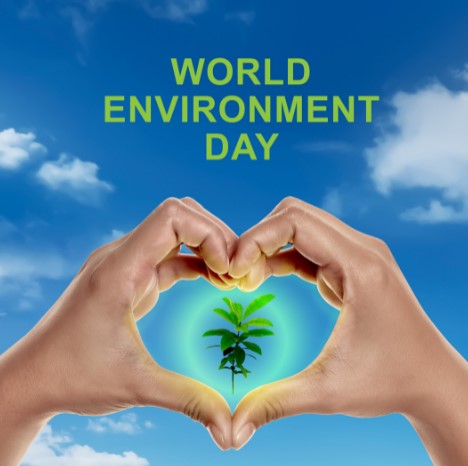
World Environment Day is celebrated every year on 5 June. Initiated by the United Nations, the day is one of the main ways of raising environmental awareness and promoting political interest and action.
What is the environment?
The environment is the set of natural and man-made elements in which life (animal, human or plant) develops. The environment is therefore the surroundings in which human beings live: this environment includes air, water, soil, natural resources, living beings and species, fungi, microbes, ecosystems and the biosphere.
How is our planet doing?
There are major ecological problems that affect the lives of animals and humans on our planet. These include all forms of pollution, climate change, ozone layer depletion, the use and management of freshwater resources, excessive deforestation, desertification and land degradation, loss of biodiversity, etc.
We depend on our environment
A healthy environment is directly related to our health. If natural resources are over-consumed and the environment is degraded, people suffer and national economies deteriorate. With regard to the environment, sustainable development aims to combine the economic, social and environmental aspects of current development problems, meeting the needs of present generations without compromising the ability of future generations to meet their own needs.
Helping our planet
World Environment Day was launched in 1972, the same day that the United Nations Environment Programme (UNEP) was created. UNEP is the highest environmental authority in the United Nations system. Its mission is to provide leadership and foster cooperation to protect the environment. It is also a source of inspiration and information, and an instrument for improving the quality of life of ecosystems and all living species.
Suggested actions
- Save water and energy by using energy-saving light bulbs, running the washing machine or dishwasher only when the machine is full or hanging clothes out to dry.
- Avoid single-use products such as wipes, tissues and disposable cutlery. Instead, use sustainable and reusable alternatives. Also avoid buying over-packaged products and compost at home. This will reduce the pressure you put on the environment by producing waste.
- Get involved in an environmental organisation or committee in your school or community. You will meet people who care about preserving our planet and who will offer you tools and actions to better understand and act.
- Put the 3R (reduce, reuse and recycle) method into practice. For example:
- Avoid aerosol products;
- Use recycled paper;
- Set up a composting system at school;
- Use a lunch box instead of disposable bags;
- Choose rechargeable batteries;
- Organise a garage sale to give a second life to items you and your family no longer use, etc.
- Use public transport, carpool or exercise (walking, jogging, cycling, inline skating...); it's good for your health! It is also good for your health and will reduce greenhouse gas emissions.
- Use reusable bags when you go shopping instead of always accepting the plastic bags offered to you.
No hay comentarios:
Publicar un comentario